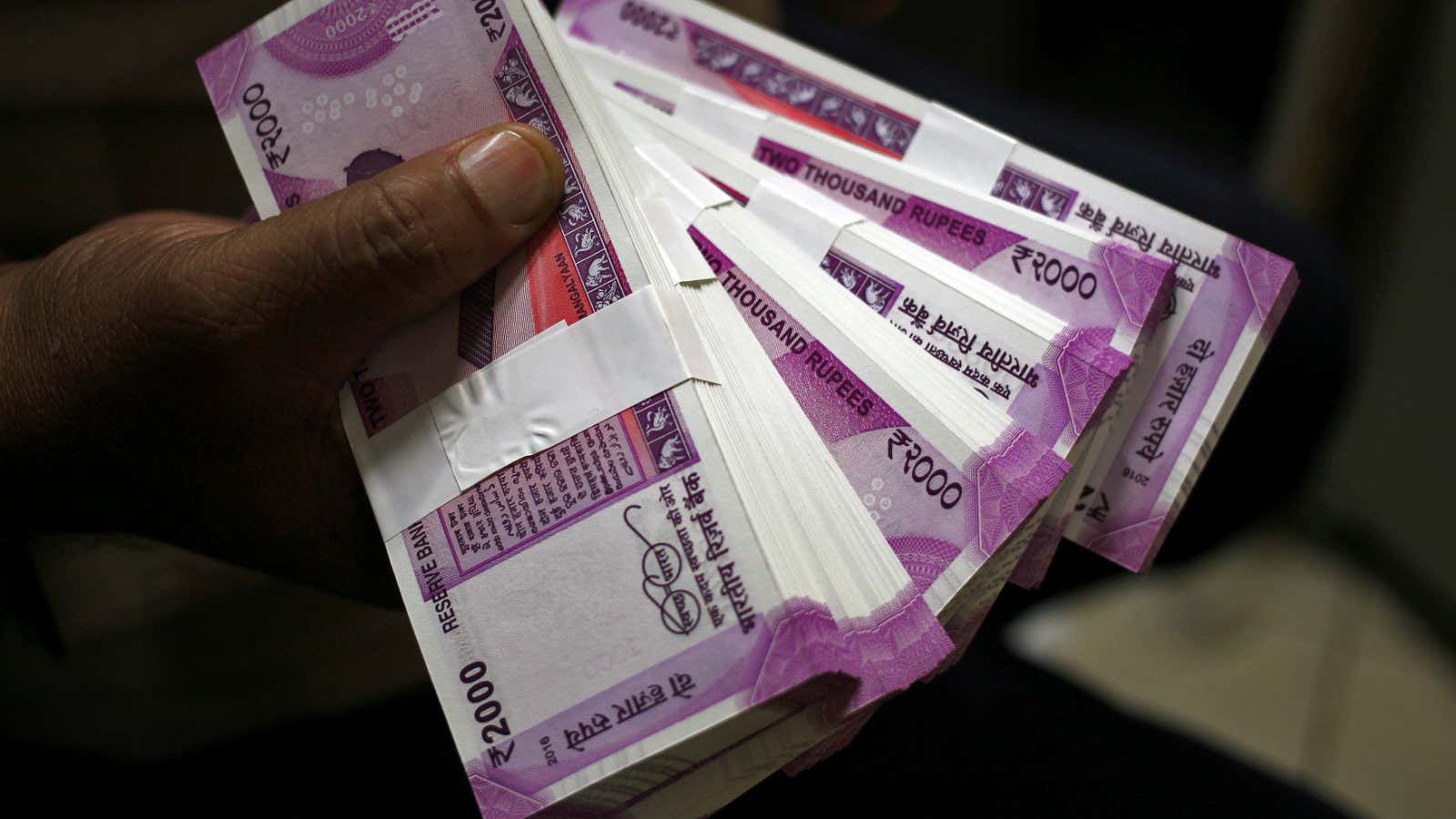On Sunday, April 22, a retired health worker named Ashok Pathak went to a United Bank of India (UBI) ATM in the Subhash Nagar neighbourhood of Bareilly, Uttar Pradesh, to withdraw some money. But among the notes totaling Rs4,500 that the counter dispensed was one very convincing fake Rs500 bill—olive green in colour and marked with the image of Mahatma Gandhi, just like the real ones. Instead of being guaranteed by the Reserve Bank of India (RBI), though, this was from one “Children Bank of India.”
Nearly a year-and-a-half after demonetisation introduced Indians to the new Rs500 and Rs2,000 notes, this is the latest in a string of cases where ATMs have dispersed fake notes. Many of these carry words like ”churan lable,” promising to pay the “barer” a sum of 500 or 2,000 “coupens.” Others show “PK” where the signature of the RBI governor should be—PK being the protagonist, an alien, of a popular Bollywood movie.
In February, a man received a fake Rs2,000 note from a State Bank of India (SBI) ATM in South Delhi, again reportedly issued by the Children Bank of India. Several such cases were reported last year in other towns like Hoshangabad and Bhind.
These play notes are otherwise available at toy and stationery stores and closely resemble the Indian currency. They’re often used for games or to teach kids money management or as props in movies, according to a report in Open magazine.
Given that most Indians generally don’t give the notes a second look once an ATM issues them, the phenomenon has sparked concerns.
As per the RBI’s rules, all the cash that banks handle must be put through a currency authentication machine before being re-circulated or loaded into ATMs. And despite the proliferation of these fake notes, the lenders maintain that their security processes are all in place. However, the fact is that many ATMs are actually maintained by private contractors whose employees can potentially slip in play notes while refilling the machines.
Earlier this year, the Delhi police arrested a 27-year-old man who worked for a cash-loading company. He reportedly replaced five Rs2,000 notes with fake versions.
After the recent incident in Bareilly, the manager of UBI told the Times of India newspaper that no other fake notes were found inside the ATM. But he laid the blame for the embarrassing situation squarely on the agency responsible for depositing cash inside it, saying they must have replaced some of the currency notes.
